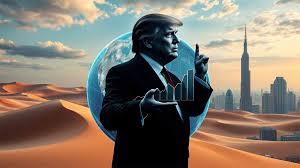In today’s interconnected world, the most successful business empires are not built solely on capital and innovation—but on diplomatic intelligence. Behind every enduring fortune lies an understanding that diplomacy and business are not separate disciplines, but rather strategic partners in the pursuit of wealth, power, and legacy.
Whether negotiating multi-million-dollar contracts, navigating international markets, or building cross-border alliances, business leaders are increasingly required to think—and operate—like diplomats.
1. Diplomacy Is the Art of the Long Game
At its core, diplomacy is the ability to build bridges, manage complexity, and maintain influence without force. In business, this is invaluable.
- Government relations are the new competitive edge. Businesses with access to policymakers enjoy smoother regulatory paths, exclusive opportunities, and better risk protection.
- Market entry depends more on who you know than what you sell. In Africa, Asia, and the Middle East, success often hinges on your ability to respect cultural hierarchies and navigate political ecosystems.
- Crisis management—from sanctions to trade disputes—requires calm, strategic negotiation. Businesses that can defuse tension diplomatically preserve capital and reputation.
2. The CEO as Diplomat
Today’s business leaders are expected to be as comfortable in a presidential palace as they are in a boardroom. The modern CEO is:
- A negotiator: Navigating deals, partnerships, and alliances with finesse.
- A statesman: Representing corporate interests on global platforms, with poise and precision.
- A cultural bridge: Translating corporate values across borders and belief systems.
- A soft-power agent: Winning influence not through aggression, but through value creation and trust.
3. Business as a Tool of Statecraft
Just as diplomacy empowers business, business also enhances diplomacy:
- Investment diplomacy is reshaping global influence. Nations use their private sector champions to strengthen alliances, create jobs abroad, and gain soft power.
- Sovereign wealth funds and national oil companies don’t just invest—they negotiate global leverage.
- Bilateral trade deals often begin with boardroom interest and are sealed by diplomatic handshakes.
In this landscape, entrepreneurs who understand diplomatic dynamics can position themselves as unofficial ambassadors of prosperity.
4. Key Traits Shared by Great Diplomats and Entrepreneurs
The best diplomats and elite business leaders operate with a similar code:
- Emotional intelligence: Knowing when to speak, when to listen, and when to walk away.
- Cultural fluency: Respecting traditions while driving transformation.
- Discretion: Speaking softly while wielding great influence.
- Strategic patience: Understanding that timing is everything in both politics and profit.
5. Legacy is Built at the Intersection
Some of the most legendary business empires in history were built not only through brilliant strategy, but through high-level diplomatic mastery:
- The Rothschilds, who leveraged discreet banking with royal diplomacy.
- Middle Eastern business dynasties, who grew empires through trust, negotiation, and alignment with national interests.
- Modern titans who navigate both Davos and Doha with equal skill.
They remind us: To own wealth is power. But to influence systems is legacy.
Final Thought: Where Empires Are Forged
In the 21st century, diplomacy and business are no longer separate arenas—they are the two sides of the same coin. If capital is the engine, diplomacy is the steering wheel.
To build a business that lasts, one must master not only the market—but the map.
In every boardroom that shapes the world, diplomacy is quietly at the table. And those who master both will not just build wealth—they will shape history.




